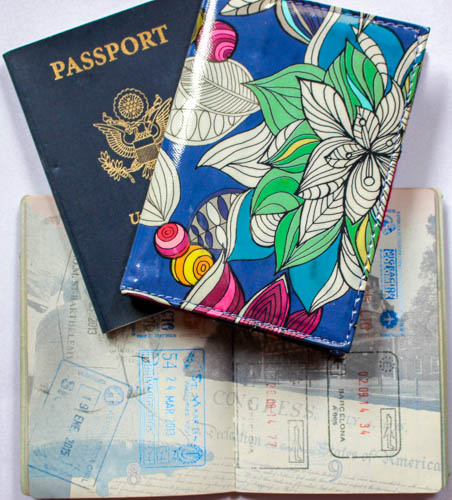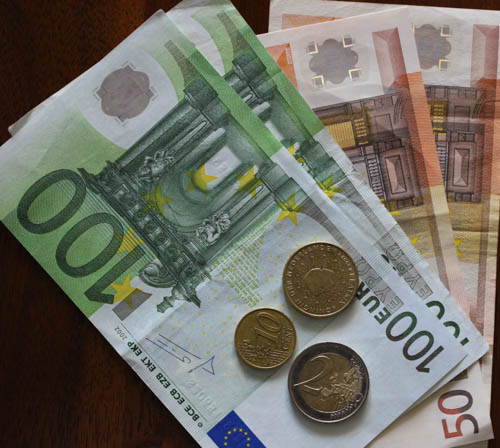Going abroad is always an exhilarating experience. The build up may seem overwhelming at times, but there’s a lot of stuff you can do ahead of time to maximize the fun and minimize the stress when you there. Here’s our list of all the things you should do before traveling abroad:
1.CHECK, AND DOUBLE CHECK, YOUR PASSPORT
The first thing you should do, upon booking an international trip, is check the expiration date on your passport. Each country has it’s own passport rules, and many do not allow you to enter if your passport expires within 6 months from the day you arrive.

Secondly – you should check (and double check) that you have your passport before you head the airport – literally make sure the thing is actually in your possession. Obviously, this should go without saying, but we know MULTIPLE people who have headed to the airport without it (*cough* Intern Logan *cough*). Also, before you leave, make a copy of it and pack that in a different bag. The copy can help expedite the process of getting a new one, in case the original gets lost.
2. Check the driving laws of the country you’re headed to
This is especially important as it pertains to blood alcohol limits. They vary greatly depending on where you’re going. Here in the US, the limit is .08, which equates to a drink, maybe two depending on your weight. The BAC is other countries is often significantly lower than here in the US – some even have a zero tolerance policy. It’s worth looking into before you go, so you don’t put your life – or anyone else’s – on the line. The best and safest option is to never drink and drive – period. Have you seen the show Locked Up Abroad??? It doesn’t have a good ending.
3. GET GLOBAL ENTRY
If you’re going to be traveling in and out of the country more than once or twice in the next few years, get Global Entry status. Global Entry is a U.S. Customs and Border Protection (CBP) program that allows expedited clearance for pre-approved, low-risk travelers upon arrival in the United States. When you return to the US, the customs line can be HORRENDOUS and sometimes take an hour or two to get through. With Global Entry, you bypass the line and speed through using the machine kiosks.
4. Byo snacks for the flight
No one wants to land in a new country with an upset stomach. Flying messes with your body enough, so we often bring our own snacks that we know will go down easy. Having snacks in your bag helps you not get lured into the litany of fast-food joints in the airport. Bring plenty of water too, so you stay hydrated.
5. VISIT YOUR LOCAL PHARMACY
There is nothing worse than being abroad and getting sick…except being sick and having a language barrier prevent you from getting the right meds! So before you leave home, pop in your local pharmacy and grab the essentials: Tylenol & Advil, heartburn medicine, Pepto, cortisone cream in case you get some weird rash, and sunscreen so you don’t get scorched. And ok we’ll just say it – get some Gas-X too because YOU NEVER KNOW.

6. get THE TEMPORARY international PLAN ON YOUR PHONE
Most of the large carriers have different international packages for when you travel abroad. For instance, AT&T’s cheapest plan is just $30 for one month. Some carriers let you add the international plan for the dates you’re away, while others may require a new SIM card be purchased in advance of your trip. Either way – it’s a simple fix!
7. REGISTer your trip with the State Department
You may not choose to do this for a trip to Canada, but should considering doing it for travels to most other countries. Head to the State Department’s STEP Program website (Smart Traveler Enrollment Program) and enter in your name, destination and dates of travel. This allows you to receive important information from the embassy about safety conditions in your destination country and helps the US embassy contact you in case of an emergency.
8. do your homework
Spend some time really getting to know where you’re headed. Delve deeper than simply finding the best beach and learn about the culture and customs. Get familiarized with a map and the areas you’ll be visiting. Find out the standard tipping amount. Are there any tricks to using public transportation? In England you need you need to swipe your metro card on the way in AND out of the tube station. In Italy, you sometimes need to get your train ticket stamped by a machine on the platform. Find out if there is a respectful way to dress according the local culture, or when visiting a church or mosque. Keep a hard copy of addresses and contacts, in case your phone dies. For the fun stuff, spend plenty of time looking up favorite local eateries, watering holes or public squares – food is one of the best ways to immerse yourself in a new place!
9. call your bank
Most banks and credit card companies appreciate a heads up that you’ll be traveling abroad. The last thing anyone wants – especially when traveling – is for their credit card to be declined because the international purchase has been flagged as irregular behavior. A simple call to let them know the dates and destinations of travel will help you avoid any embarrassment or inconvenience.

10. Exchange THAT Cash
Currency exchange counters at the airport are readily available, but often more expensive. It’s usually better exchange cash at your local bank before you go. Once you land, you can hit up the ATM if you need more cash. It’s also great to bring both a debit and credit card, in case there are issue with one.








